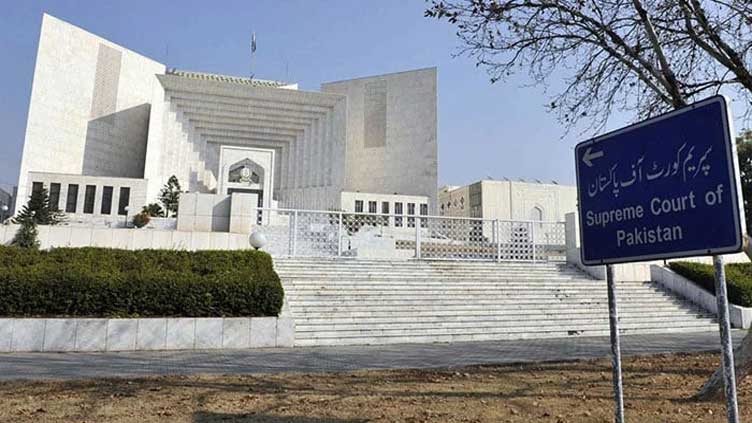SC judges urge suspension of new appointments until 26th Amendment ruling

Pakistan
Justice Mansoor, Justice Munib Akhtar, Justice Ayesha Malik, and Justice Athar Minallah wrote letter
ISLAMABAD (Dunya News) – Four Supreme Court judges have written a letter to Chief Justice Yahya Afridi, demanding the postponement of the Judicial Commission meeting scheduled for February 10.
They stated that the appointment of new judges should be halted until the 26th Constitutional Amendment case is decided.
Justice Mansoor Ali Shah, Justice Munib Akhtar, Justice Ayesha Malik, and Justice Athar Minallah authored the letter.
In the letter, the judges urged that at the very least, appointments should be delayed until the constitutional bench decides on the request for a full court. They also stated that new judicial appointments should be put on hold until the seniority of Islamabad High Court judges is determined.
The letter highlighted that the constitutional bench might call for a full court in the 26th Amendment case, which could create a dispute over which judges would constitute the full court.
The judges pointed out that three judges were transferred to the Islamabad High Court, and according to the Constitution, they were required to take a fresh oath.
The letter argued that without taking the oath, the status of these judges remains questionable. Despite this, the seniority list of Islamabad High Court judges has already been altered.
The judges warned that bringing in new judges under the current circumstances would create an impression of "court packing." They questioned why the judiciary was being put in this situation.
The judges directly asked the chief justice whose agenda and interests were being served by placing the court in this situation.
The letter emphasised that, constitutionally, judicial transfers can only be temporary, not permanent. Such transfers should be for a fixed period and cannot be indefinite.
It was further stated that if no specific tenure is set, the transfer order can be revoked at any time. Transfers should only be made when the required number of judges in the respective high court is complete.
The judges maintained that, constitutionally, transferred judges must take an oath again. The oath of a high court judge is specific to the court they are appointed to and does not apply to all high courts.
The letter also criticised the Chief Justice of the Islamabad High Court for unilaterally determining seniority, disregarding constitutional provisions. It pointed out that a judge ranked 15th in seniority in the Lahore High Court was made the most senior judge in Islamabad.
The judges questioned who would constitute the full court if the constitutional bench approves the request for one. If a full court is formed, would the newly appointed judges be included?
The letter warned that if new judges are excluded, doubts will arise about whether the bench is a legitimate full court. If the existing constitutional bench hears the case, it already faces a crisis of public confidence. The situation is creating a perception of "court packing."


